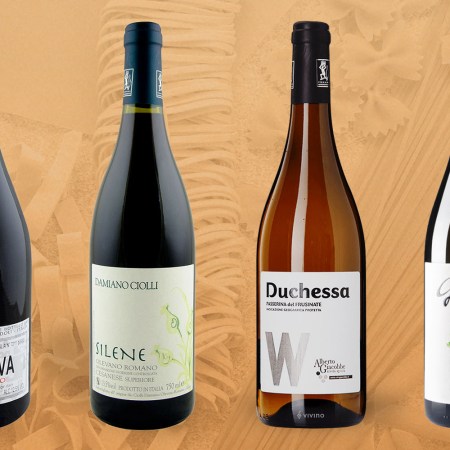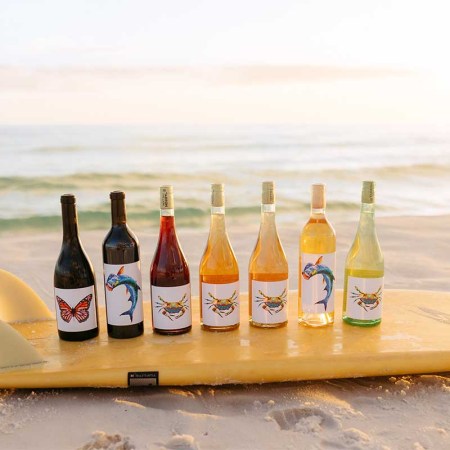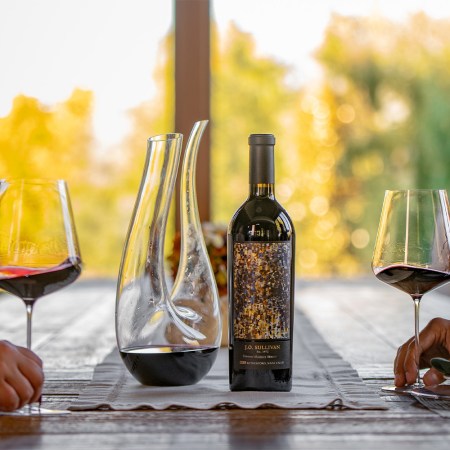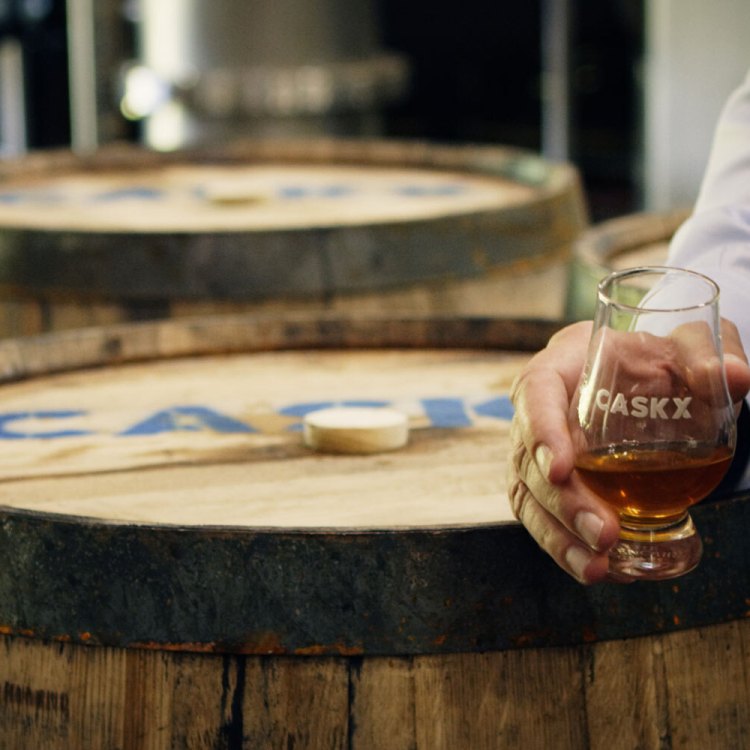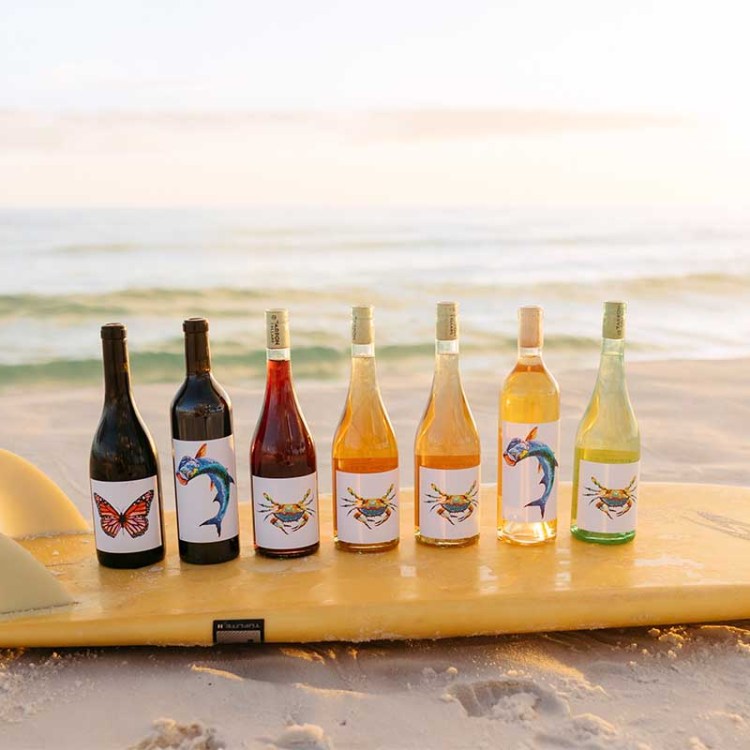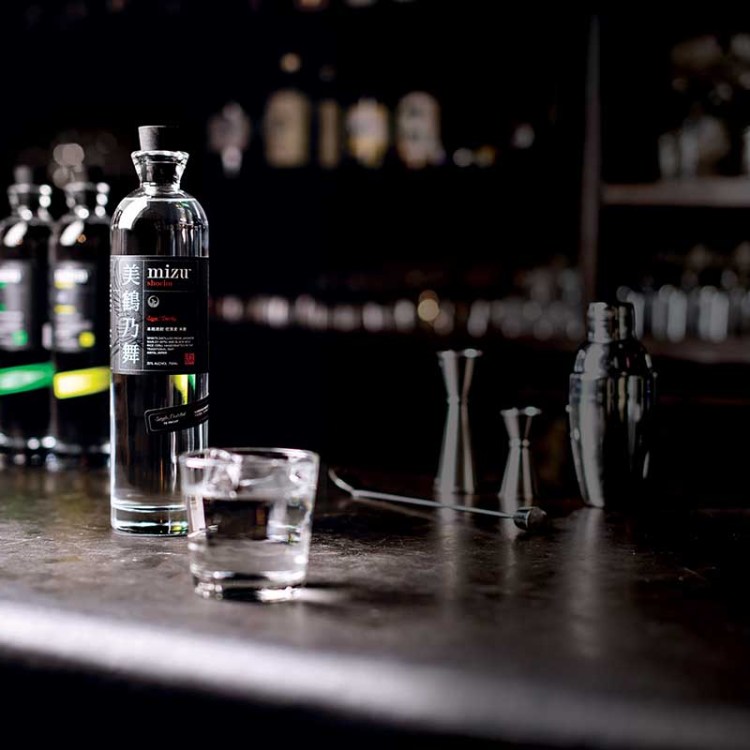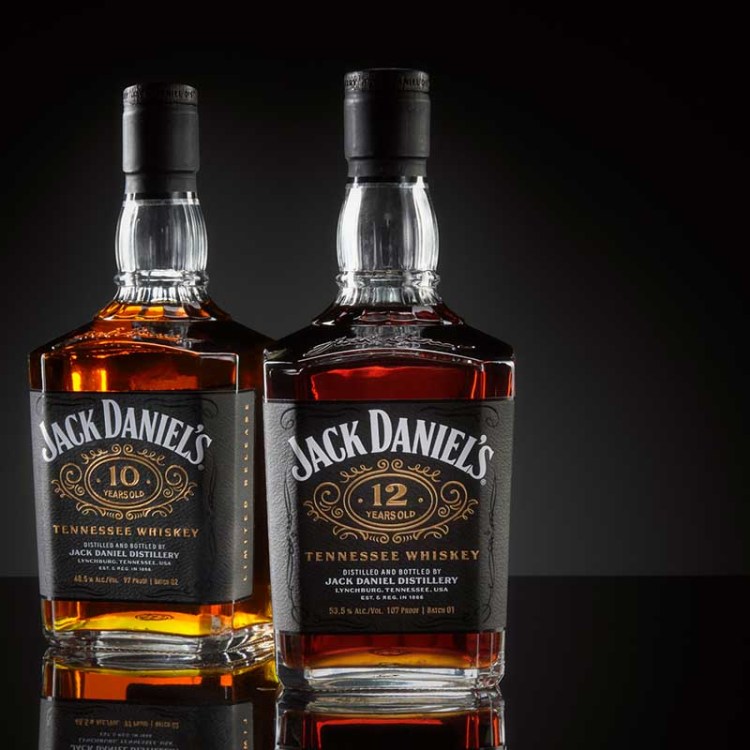Every month on the West Coast, there are dozens, of wine tastings. For the most part, they’re formulaic: Tables lined up through a room (or a field or any manner of large space) for winemakers to pour their newest bottlings to crowds of curious fans. There’s plenty of great wine but it all largely feels like “cattle calls,” as one winemaker described it.
This one was a little different.
On a sunny Oregon afternoon, 17 different wineries set up their wares at Remy Wines in the Willamette Valley of Oregon. They were there to pour but also to celebrate. Instead of silence as oenophiles contemplate the characteristics of each wine, there was a concert from Camp Crush — a new-age pop duo produced by Doja Cat’s go-to Rian Lewis — that set the mood. Business casual clothes were scrapped as the rainbow was the preferred dress code, be it neon-hued sunglasses or generally jovial prints. While wine tastings can tend to feel stuffy, this was anything but. It was spirited, special and highly celebratory.
Welcome to Queer Wine Fest.
“It would be really difficult to not have a bunch of wine people on a queer-owned farm have a bad time,” says Luke Wylde, winemaker and owner of Statera Cellars. “If there’s one thing about marginalized people…when they all get together, they know how to celebrate.”
A day later, as part of broader Wine Country Pride festivities, drag queens held a storybook hour (in English, Spanish and ASL), as rainbow-bedecked pets marched through the streets of McMinnville and speed “friending” took place.
This isn’t just a bevy of West Coast wine brands putting money into a rainbowed-for-one-month rigmarole of events — it’s a celebration of 17 different winemakers from across the country coming together to share experiences and highlight queer-made and grown wines.
“There’s no network for queer wineries,” explains Remy Drabkin. “We have no clue how many queer-owned wineries even exist in the U.S.” This is the first opportunity for LGBTQ+ winemakers and industry members to connect with a community. Two wineries used even Queer Wine Fest as an opportunity to identify as part of the queer community for the very first time.

Drabkin founded Queer Wine Fest and Wine Country Pride and has been a very vocal advocate and figurehead for the queer community in wine. And yet … “I’m hesitant to speak on behalf of the wine community. What’s so unique about the queer industry is it’s as diverse as the rest of the population. Queer people are every race, gender, culture, origin, and political leaning….” … pause … “Maybe not every political leaning,” Drabkin laughs. “Essentially, when we pull queer wine forward, we’re not pulling one voice forward.”
Just like the expanse of diversity within the queer community, wines made by these producers are equally diverse. Drabkin herself narrows in on some of Italy’s more elegant offerings: Legrein (excellent value Alpine varietal for fans of aged Nebbiolo), Arneis (think Piedmont wines, but white, floral and slightly grassy), Dolcetto and Sangiovese.
Elk Cove — who also poured at Queer Wine Fest — is one of Oregon’s oldest producers, producing estate-grown multi-faceted pinot noirs with incredible purity of fruit. Portland’s Ram Cellars focuses on small-lot production of natural roses (like the light-press Lumiere, or a crunchy, cherry-hued Malbec rose) along with skin-contact wines and cabernet franc. Mercury Wines zeros in on bubbles, though they have a slick selection of Albarino, Sauvignon Blanc and Tempranillo, while Circadian Cellars (complete with a neon sign) makes Oregon-ized Vermentino and Primitivo (with wickedly fun labels if visuals are more your jam).

Statera Cellars focuses on outstanding Chardonnays. “Winemaker Meredith Bell grew up in Oregon and went to Burgundy to study how to make Pinot Noir, the king grape from her home place. Once there she found out that Chardonnay is the story,” explains Tamy Rofe, sommelier, and partner of Comodo, Disco Tacos and Colonia Verde in New York City. “She went back home to Oregon and is now doing Chardonnay on different terroir and regions of Oregon.” Bell and Wylde produce lovely and wildly interesting Chardonnays. “The Johan is a dream of a wine,” says Rofe.
But while all these producers possess winemaking prowess, being queer in wine has unique struggles. Wine, while we love it, is an incredibly outdated industry. The number of minority producers is sparse and simply not enough.
While some brands used Queer Wine Fest to stand with their community, others were hesitant. One “major” U.S. wine brand contacted Drabkin. “They were out and they were excited to participate, but we were worried about being out in wine. They didn’t know if they were ready to take their business there.” Ultimately, they didn’t participate.
Perhaps it’s because queer winemakers often get tokenized. During June — and often largely solely in June — Drakin’s inbox is full of invitations. While many are well-intentioned, some lean a bit duplicitous — doubling as checking a diversity box. One large Oregon hotel asked her to come and pour her wines (without budget or compensation) in the lobby.
Her response email was perfectly poised, suggesting instead the hotel consider putting a flight of queer-made wine on their restaurant and bar menu. She offered to connect them with a handful of other winemakers who would be happy to be featured on the flight. The hotel did not answer.
“Queer Wine Fest is amazing because producers weren’t invited to fill some diversity hole,” says Drabkin.

Outside of tokenism, there are other consequences for loving who you love. Drabkin’s winery is vandalized monthly — she’s at the sheriff’s station almost every three weeks. “We have had people who come into our winery and identified themselves as Nazis. They said how much they hate queer people. They told us how much they hate Jews. And how much they hate women.”
She sighs. “That’s the world I live in being a noticeable queer person in the wine industry.” She receives emails, like the two following, frequently.
The first is from a long-time member of her wine club. ‘We love you,’ it read. ‘We love everything you do. But gosh, everything you’re doing is just so queer.’
The second email was from a volunteer. It made her entire team cry.
The email detailed how the volunteer had never met another trans person in rural Oregon, let alone in the wine industry. ‘I didn’t know there were other people like me. Queer Wine Fest restored my faith. It made me feel like I have a sense of place and belonging….that it’s okay to be here.’
“With all the tough stuff in the world, finding joy is really important,” says Statera’s Wylde. “The amount of vitriol and hate Remy receives is dialed up during pride month. To lean into it and say, ‘Screw you guys, I’m going to throw a giant pride festival…’ It’s awesome. Despite everything she’s going through, she pulls this together and makes it special.”
“When you have a lot of queer people telling you they’re scared to be out in the world of wine, something is happening,” says Drabkin. “We need Queer Wine Fest.”
This article was featured in the InsideHook newsletter. Sign up now.

